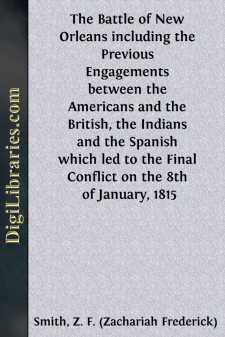Categories
- Antiques & Collectibles 13
- Architecture 36
- Art 48
- Bibles 22
- Biography & Autobiography 813
- Body, Mind & Spirit 142
- Business & Economics 28
- Children's Books 17
- Children's Fiction 14
- Computers 4
- Cooking 94
- Crafts & Hobbies 4
- Drama 346
- Education 46
- Family & Relationships 57
- Fiction 11829
- Games 19
- Gardening 17
- Health & Fitness 34
- History 1377
- House & Home 1
- Humor 147
- Juvenile Fiction 1873
- Juvenile Nonfiction 202
- Language Arts & Disciplines 88
- Law 16
- Literary Collections 686
- Literary Criticism 179
- Mathematics 13
- Medical 41
- Music 40
- Nature 179
- Non-Classifiable 1768
- Performing Arts 7
- Periodicals 1453
- Philosophy 64
- Photography 2
- Poetry 896
- Political Science 203
- Psychology 42
- Reference 154
- Religion 513
- Science 126
- Self-Help 84
- Social Science 81
- Sports & Recreation 34
- Study Aids 3
- Technology & Engineering 59
- Transportation 23
- Travel 463
- True Crime 29
Our website is made possible by displaying online advertisements to our visitors.
Please consider supporting us by disabling your ad blocker.
The Battle of New Orleans including the Previous Engagements between the Americans and the British, the Indians and the Spanish which led to the Final Conflict on the 8th of January, 1815
Categories:
Description:
Excerpt
INTRODUCTION
England was apparently more liberal than Spain or France when, in the treaty of 1783, she agreed to the Mississippi River as the western boundary of the United States. Spain was for limiting the territory of the new republic on the west to the crest of the Alleghany Mountains, so as to secure to her the opportunity of conquering from England the territory between the mountains and the Great River. Strangely enough and inconsistently enough, France supported Spain in this outrageous effort to curtail the territory of the new republic after she had helped the United States to conquer it from England, or rather after General Clark had wrested it from England for the colony of Virginia, and while Virginia was still in possession of it. The seeming liberality of England, however, may not have been more disinterested than the scheming of Spain and France in this affair. England did not believe that the United States could exist as a permanent government, but that the confederated States would disintegrate and return to her as colonies. The King of England said as much when the treaty was made. If, then, the States were to return to England as colonies, the more territory they might bring with them the better, and hence a large grant was acknowledged in the treaty of peace. The acts of England toward the United States after acknowledging their independence indicate that the fixing of the western boundary on the Mississippi had as much selfishness as liberality, if indeed it was not entirely selfish.
The ink was scarcely dry upon the parchment which bore evidence of the ratified treaty of 1783 when the mother country began acts of hostility and meanness against her children who had separated from her and begun a political life for themselves. When the English ships of war, which had blockaded New York for seven long years, sailed out of the harbor and took their course toward the British Isles, instead of hauling down their colors from the flagstaff of Fort George, they left them flying over the fortification, and tried to prevent them from being removed by chopping down all the cleats for ascent, and greasing the pole so that no one could climb to the top and pull down the British flag or replace it by the colors of the United States. An agile sailor boy, named Van Arsdale, who had probably ascended many trees in search of bird's nests, and clambered up the masts of ships until he had become an expert climber, nailed new cleats to the flagstaff and climbed to its summit, bearing with him the flag of the new republic. When he reached the top he cut down the British flag and suspended that of the United States. This greasy trick may have been the act of some wag of the retiring fleet, and might have been taken for a joke had it not been followed by hostile acts which indicated that this was the initial step in a long course of hostility and meanness.
But it was soon followed by the retention of the lake forts which fell into British hands during the Revolutionary War, and which, by the terms of the treaty, were to be surrendered....


